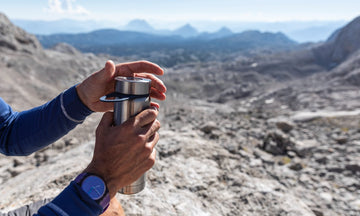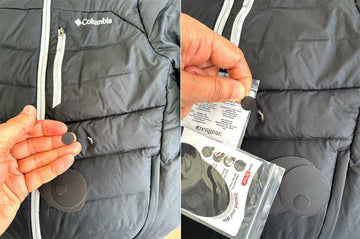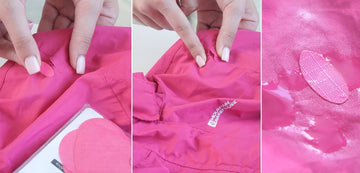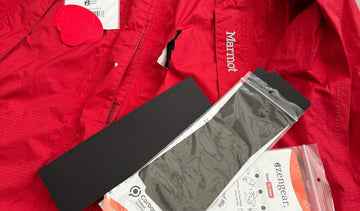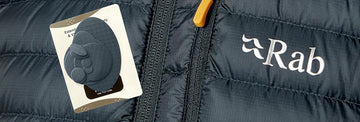Hydration 101: Understanding Dehydration Signs and Insider Tips for Hot Weather Survival
by Emily Jannet on May 24, 2023
Staying hydrated is crucial, especially when the scorching heat of summer takes its toll. Dehydration occurs when our bodies lose more fluids than we consume, leading to a range of unpleasant symptoms and potential health risks. Recognizing the signs of dehydration and knowing how to stay hydrated in hot weather are essential for maintaining our well-being. In this article, we will delve into the key indicators of dehydration and provide valuable tips to get enough water during those sweltering summer days.
Signs of Dehydration
Dehydration can sneak up on us, making it crucial to be aware of its signs and symptoms. By recognizing these indicators early on, we can take appropriate measures to replenish our bodies with the necessary fluids. Here are the signs to watch out for:
Dry Mouth and Thirst: When you're dehydrated, your mouth tends to feel dry, and you may experience an intense thirst that's hard to quench. These are clear signals that your body needs water urgently.
Dark Yellow Urine: The color of your urine can be a reliable indicator of dehydration. If your urine appears dark yellow or amber, it suggests that you need to increase your fluid intake immediately.
Fatigue and Weakness: Dehydration often leads to feelings of fatigue and weakness. If you find yourself lacking energy and struggling to perform daily tasks, it may be due to inadequate hydration.
Headaches: Persistent headaches can be a sign that your body is dehydrated. When you don't consume enough fluids, the brain can shrink temporarily, causing it to pull away from the skull and triggering painful headaches.
Dizziness and Lightheadedness: Feeling dizzy or lightheaded can be a consequence of dehydration. When fluid levels drop, blood circulation may be compromised, leading to these uncomfortable sensations.
Dry Skin and Lips: Dehydration can result in dry, flaky skin and chapped lips. If your skin lacks moisture and elasticity, it's an indication that you need to hydrate your body.
Tips to Stay Hydrated in Hot Weather
Now that we are familiar with the signs of dehydration, it's time to explore some effective strategies to stay hydrated, particularly when the weather is scorching hot. By following these tips, you can keep your body replenished and avoid the discomfort and risks associated with dehydration:
-
Carry a Water Bottle Everywhere You Go
Make it a habit to carry a reusable water bottle with you wherever you venture out. Having water readily available encourages regular sips and makes it easier to meet your daily fluid intake requirements. Remember to refill it whenever needed, ensuring you always have a refreshing source of hydration.
-
Drink Water Before You Feel Thirsty
Thirst is often a delayed signal that your body is already dehydrated. To prevent this, proactively drink water throughout the day, even if you don't feel thirsty. By staying ahead of your body's water needs, you can maintain optimal hydration levels.
-
Consume Water-Rich Foods
In addition to drinking water, you can boost your hydration by incorporating water-rich foods into your diet. Fruits like watermelon, oranges, and grapes, as well as vegetables such as cucumbers and lettuce, have high water content. Enjoying these foods not only provides essential nutrients but also contributes to your overall hydration.
-
Avoid Excessive Caffeine and Alcohol
While a cup of coffee or a refreshing alcoholic beverage may seem tempting, it's important to consume them in moderation, especially in hot weather. Both caffeine and alcohol have diuretic properties that can increase fluid loss through urination, leading to dehydration. If you choose to indulge in caffeinated or alcoholic beverages, make sure to balance them out by consuming extra water to compensate for the additional fluid loss.
-
Set Reminders to Drink Water
In the midst of a busy day, it's easy to forget to hydrate yourself. Set reminders on your phone or use a hydration tracking app to prompt you to drink water at regular intervals. These reminders can help you stay mindful of your hydration goals and ensure that you consistently replenish your body with fluids.
-
Dress Appropriately for the Weather
Wearing appropriate clothing can play a role in staying hydrated during hot weather. Opt for lightweight, loose-fitting clothes that allow your body to breathe and sweat evaporate. This helps regulate body temperature and prevents excessive fluid loss through perspiration.
-
Seek Shade and Cool Environments
When the sun is blazing, finding shade and cool environments can make a significant difference in your hydration levels. Heat exposure increases the risk of dehydration, so try to spend time in shaded areas or air-conditioned spaces whenever possible, especially during the hottest parts of the day.
-
Use Sunscreen to Prevent Sunburn
Sunburn not only damages the skin but also disrupts the body's natural cooling mechanisms. When your skin is sunburned, it becomes harder for your body to regulate temperature and may lead to increased fluid loss through sweating. Apply a broad-spectrum sunscreen with a high SPF to protect your skin from harmful UV rays and reduce the risk of sunburn.
-
Take Breaks and Rest
Engaging in physical activities or spending prolonged periods outdoors in hot weather can accelerate fluid loss through sweating. To avoid dehydration, take regular breaks and rest in shaded areas. This allows your body to recover, cool down, and rehydrate before continuing with your activities.
-
Monitor Urine Color
Keeping an eye on your urine color can give you valuable insights into your hydration status. Aim for a pale, straw-colored urine, which indicates that you are adequately hydrated. If your urine is dark yellow or amber, it's a sign that you need to increase your fluid intake.
FAQs about Dehydration and Hydration in Hot Weather
- What are the main causes of dehydration in hot weather?
The main causes of dehydration in hot weather include excessive sweating, inadequate fluid intake, high temperatures, and engaging in physical activities without proper hydration.
- How much water should I drink in hot weather to stay hydrated?
In hot weather, it's recommended to drink at least 8 to 10 glasses (64 to 80 ounces) of water per day. However, individual fluid requirements may vary based on factors such as age, weight, activity level, and overall health.
- Are sports drinks better than water for hydration in hot weather?
Sports drinks can be beneficial for prolonged, intense physical activities as they provide electrolytes and carbohydrates. However, for most individuals in everyday situations, water is the best choice for hydration in hot weather.
- Can certain medications contribute to dehydration in hot weather?
Yes, some medications, such as diuretics or those that increase sweating, can contribute to dehydration. If you are taking medication, consult your healthcare provider about any potential risks and how to maintain adequate hydration.
- Are there any specific groups of people who are more susceptible to dehydration in hot weather?
Yes, certain groups, such as the elderly, children, athletes, and individuals with certain medical conditions, are more susceptible to dehydration in hot weather. It's important for these groups to take extra precautions and prioritize hydration.
- What are the long-term health risks of chronic dehydration?
Chronic dehydration can have detrimental effects on various aspects of your health. Some of the long-term health risks associated with chronic dehydration include:
Kidney problems: Inadequate hydration can impair kidney function and increase the risk of kidney stones and urinary tract infections.
Digestive issues: Dehydration can lead to constipation and other digestive problems as the body tries to conserve water.
Skin disorders: Insufficient hydration can contribute to dry skin, wrinkles, and an increased risk of skin infections.
Reduced cognitive function: Dehydration can negatively impact cognitive abilities, including concentration, memory, and mood.
Increased risk of heat-related illnesses: When the body lacks proper hydration, it becomes more susceptible to heat exhaustion and heatstroke, both of which can be life-threatening.
It's essential to prioritize hydration and address any signs of chronic dehydration to maintain optimal health in the long run.
Conclusion
Staying hydrated in hot weather is crucial for overall well-being. By recognizing the signs of dehydration and implementing effective strategies to maintain hydration, you can protect yourself from the discomfort and health risks associated with inadequate fluid intake. Remember to listen to your body, drink water proactively, and make smart choices to keep yourself cool and hydrated during those scorching summer days. Stay safe, stay hydrated!

